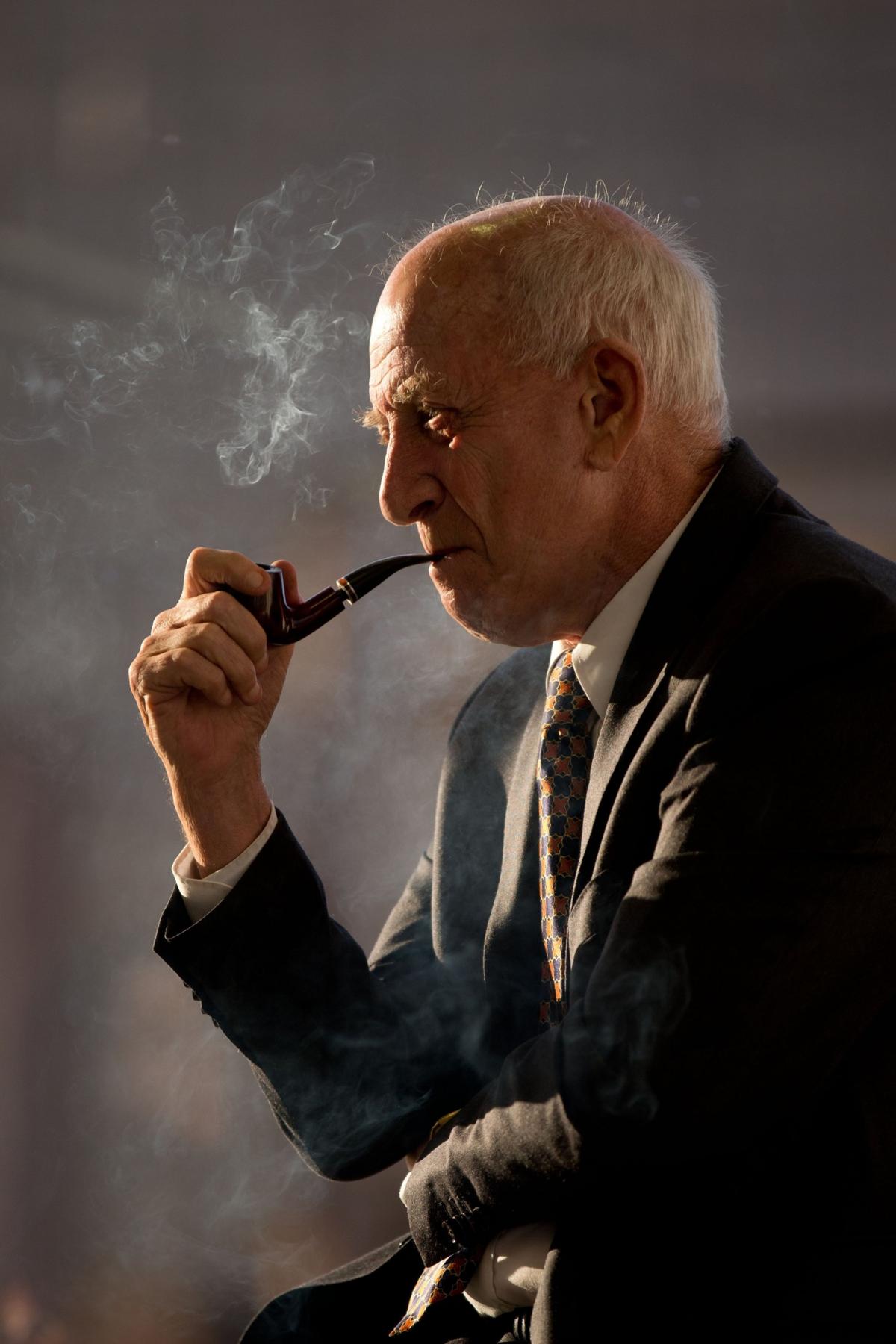Businessman
Never far away from controversy, Sir Robert Jones was a mass of contradictions.
A wildly outspoken man who fiercely guarded his privacy, a man who was an active participant in public life but was a prolific giver behind the scenes, a tycoon with a state house neighbourhood background, Robert Edward Jones was a complex but fascinating man who regularly defied the public perception of him,
Born in Lower Hutt into a poor but talented family (novelist Lloyd Jones is a sibling), Jones was a foundation pupil of Naenae College and one of just 10 of that intake to return for the sixth form rather than head out to work.
Jones continued to defy expectations by making it to Victoria University, although he dropped out to work in advertising and publishing.
Before doing so Jones won the New Zealand universities lightweight boxing title in 1957 and earned a blue.
He remained a devotee of the sport and as well as backing many fighters personally and financially Jones also often commented on the sport in the media or commentated bouts on television.
Jones became fascinated by property and its potential to generate wealth. In 1964, he founded Robert Jones Investments, a development firm which became a multi-billion-dollar enterprise, one of New Zealand’s best-known firms, and which changed the skyline of many a city.
Driven by its founder’s ebullient personality and forthright utterances, RJI became a rare corporation in that its doings were known by the general public — even more so when the firm floated on the Stock Exchange in 1982 and its shares became a staple in the pre-87 crash portfolios of many a mum and dad investor.
While the firm, and Jones, survived the crash of 1987, RJI’s share price never returned to its bull market heights.
The firm’s bounteous profits enabled its founder to revel in a millionaire’s lifestyle and Jones was a regular sight in Wellington’s night spots and intrigued enthusiastically in politics.
In 1977 he was an enthusiastic supporter of well-known drag queen and night spot owner Carmen’s quixotic campaign for the Wellington mayoralty, and Jones was also a liberal backer of the National Party until falling out with its leader Sir Robert Muldoon.
In 1983, purely with the intention of bringing down the Muldoon government, Jones formed the New Zealand Party. Its mix of free market economics and anti-defence policies split the National vote: in a first-past-the-post election its 12% of the vote garnered no seats but did help the David Lange-led Labour Party to a landslide win.
During the campaign Jones — a regular fixture in the country’s courts — helped make defamation law history after he successfully sued Hugh Templeton, National’s candidate in the Ohariu seat which Jones himself stood in. The precedent the case set is still relevant law today.
Other notable court cases involving Jones included an unsuccessful attempt by Muldoon to sue him for defamation (Jones, never long to hold a grudge, later organised a parliamentary function for the former prime minister), a 1985 conviction for assault when he famously punched TVNZ reporter Rod Vaughan (Jones quipped that he would pay double his fine if he could do it again), and a 2018 defamation case over a petition to have his knighthood (awarded in 1989) to be revoked — a case Jones himself dropped.
As well as his business interests, Jones was a prolific writer. As well as a forthright and often controversial column which ran in many newspapers (it ran in the ODT for some years), Jones also wrote books on property, politics and boxing, and several novels.
Perhaps his best book was a collection of Jones’ often scabrous and laugh-out-loud letters.
Despite his brazen and defiantly blokey and not at all politically correct public persona, Sir Robert had a private, softer side.
He was a generous and non-public donor to many charities (notably Women’s Refuge) and a funder of many arts organisers. Sir Robert gave plentifully and often to many causes and seldom sought any attendant publicity.
Sir Robert divided his time between living in Australia, where he had considerable property interests, and New Zealand. He seldom publicised his personal life but was known to have married several times and to have had nine children — he described himself as an “unconventional” father.
Sir Robert Jones died on May 2 aged 85. — APL/RNZ
